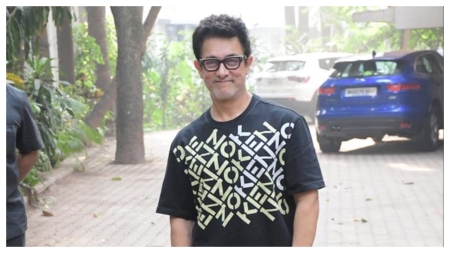Kerala too, like many other parts of India, has experienced numerous chilling incidents of police brutality over the years. From the Mattancherry police firing of 1953, the Angamaly firing of 1959 and the Rajan case of 1976 to the Koothuparamba firing of 1994, the Muthanga case of 2003 and the Beemapally firing of 2009, in addition to various custodial deaths, Kerala has also witnessed several instances of police inciting violence.
Among them is the Thankamani incident of 1986, which serves as the inspiration for director Ratheesh Reghunandan’s latest crime thriller, Thankamani, starring Dileep in the lead role.

To provide context, according to reports, an altercation arose in Idukki, 1986, after employees of a private bus attacked college students who demanded that the vehicle from Kattappana continue to Thankamani as agreed, rather than stopping at the nearby Paramada claiming that the path to Thankamani was in poor condition. Thankamani residents seized control of the bus, bringing it to their village to seek an apology and resolution. Upon learning of this, the bus owner summoned police to the village, sparking a quarrel between officers and locals. Enraged, the police resorted to violence by opening fire on the villagers, resulting in one death and severe injuries to another. Reports say that they also set houses on fire, thrashed men and sexually assaulted women. The incident significantly impacted the political climate in Kerala and was a key factor in the failure of Congress leader K Karunakaran’s UDF government in the Assembly elections held five months later.
Combining real-life events with fiction, the film Thankamani is, in a way, an attempt to document the horrors experienced by the villagers on that fateful October night and offer them a form of ‘justice’, albeit within the realm of cinema.
Watch Thankamani trailer here:
The movie opens with the cold-blooded murder of a politician by an unknown assailant. As the investigation unfolds, Arpitha Nath IPS (Pranitha Subhash), the lead investigator, discovers similarities between this murder and the killing of a police officer a year earlier. Delving deeper, she connects these crimes to the Thankamani incident and begins unravelling the events of 1986 in the village. This leads her to Abel Joshua Maathan (Dileep), a Thankamani resident who, like many others, suffered from police brutality. Arpitha learns that Abel is responsible for the murders. But his hitlist includes more people, all involved in the 1986 incident. The rest of the film follows Arpitha’s pursuit of Abel and his attempts to fulfil his mission.
Right from the outset, Thankamani gives the impression of being poorly conceived and this feeling only intensifies as the film unfolds. Featuring sloppy dialogues and moments lacking emotional impact, Thankamani struggles to integrate its scenes cohesively.
The investigation part too is similarly subpar, with all clues seemingly falling onto Arpitha’s lap without the need for much critical thinking on her part. Meanwhile, a character, Robin Paul IPS (Ajmal Ameer), appears from nowhere without any introduction, adding to the confusion, only to be later understood by us as one of Arpitha’s assistants in the probe. Arpitha herself is a poorly developed character with lacklustre dialogues, dubbing and lip-sync, lacking a proper identity and failing to make any significant revelations during the investigation, rendering her the weakest character in Thankamani’s long list of weak characters.
Even the character of Abel lacks proper development and consistency, displaying contradictory behaviour throughout the movie due to inconsistent characterisation. Despite introducing several side characters like Abel’s wife Anitha (Neeta Pillai), his sister Rahel (Malavika Menon), his friends Thankachan (Azees Nedumangad) and Roy (Sudev Nair), and the main antagonist Mani Peter (Manoj K Jayan), none of them leave a lasting impact, and they end up being mere placeholders devoid of depth as if they were just born and have no clue as to what world they were in.
While the movie, at the start itself, says that it is only inspired by the real incident and that the events depicted are fictional, Thankamani’s narrative is crafted in such a way that it almost invalidates the collective trauma and horrors experienced by numerous villagers by focusing solely on Abel’s story. Despite briefly showing the police violence inflicted on many, the film only centres on Abel’s personal struggles and his quest for revenge, neglecting the experiences of other Thankamani residents. This skewed perspective turns a significant community tragedy into a narrow revenge tale, diminishing the broader impact of the incident and reducing it to one person’s pursuit of justice.
The film also presents Thankamani, in its tagline, as a “bleeding village”, but its makers should have realised that Thankamani is not just a village that bled. They should not have overlooked the villagers’ resilience. Thankamani not just suffered… They also stood up and protested against the atrocities, making waves across Kerala, and demanding justice.
 Ratheesh Reghunandan’s Thankamani stars Dileep and Neeta Pillai in the lead roles. (Image: Dileep/Facebook)
Ratheesh Reghunandan’s Thankamani stars Dileep and Neeta Pillai in the lead roles. (Image: Dileep/Facebook)
Thankamani’s handling of the reports suggesting that many women were assaulted that night is also concerning, as many characters (men, obviously) are shown at various points asking the politicos not to discuss it publicly, stating that “it would affect the future of their women”, implying a disregard for justice for the victims and survivors.
At the same time, by depicting Abel seeking revenge against only a select few who were directly involved in the atrocities, the film also nullifies the larger issue of the powerful utilising state machinery to oppress the underprivileged, particularly those from lowered castes who resided in the actual Thankamani.
Another unbearable aspect of Thankamani, again related to its dialogues, is the accent used by the actors to indicate the film’s setting in Idukki. Writer-director Ratheesh should have realised that the excessive use of “Enna” (a variation of the Malayalam word “Entha“, meaning “What”, commonly used in central Kerala) does not necessarily reflect an accurate accent. While characters frequently insert “enna” into their dialogues, the delivery of the remaining lines does not align with any of the local slangs in Idukki and lacks a fluid, natural flow, resulting in all conversations sounding unpolished.
Thankamani also suffers from a string of miscast actors, with Azees Nedumangad being the sole exception. None of the actors appear to fully embody their characters, let alone deliver satisfactory performances. Pranitha Subhash stands out as the most glaring miscast, failing to convince the audience of her portrayal as Arpitha. Similarly, Neeta Pillai’s performance as Anitha is also disappointing. From Manoj K Jayan and Sudev Nair to Malavika Menon and Siddique, none of the actors make a lasting impression.
Dileep’s performance in the film is particularly dismal, even worse than his previous work in Bandra. Despite his attempts, he fails to grasp Abel’s depth, surroundings and emotions, resulting in an unconvincing performance. Even during emotional scenes where Abel is supposed to be crying, Dileep fails to convey the character’s feelings, making everything seem amateurish.
Even the technical aspects of the film, including cinematography, editing and art direction, are equally subpar and do not provide any support to salvage the sinking Thankamani.
In short, while Thankamani attempts to document, with the help of fiction, an incident that deserves more attention, the subpar manner in which the film’s team has executed it is evidently not the right approach.
Thankamani movie cast: Dileep, Pranitha Subhash, Neeta Pillai, Manoj K Jayan
Thankamani movie director: Ratheesh Reghunandan
Thankamani movie rating: 1 star
Disclaimer: The copyright of this article belongs to the original author. Reposting this article is solely for the purpose of information dissemination and does not constitute any investment advice. If there is any infringement, please contact us immediately. We will make corrections or deletions as necessary. Thank you.







